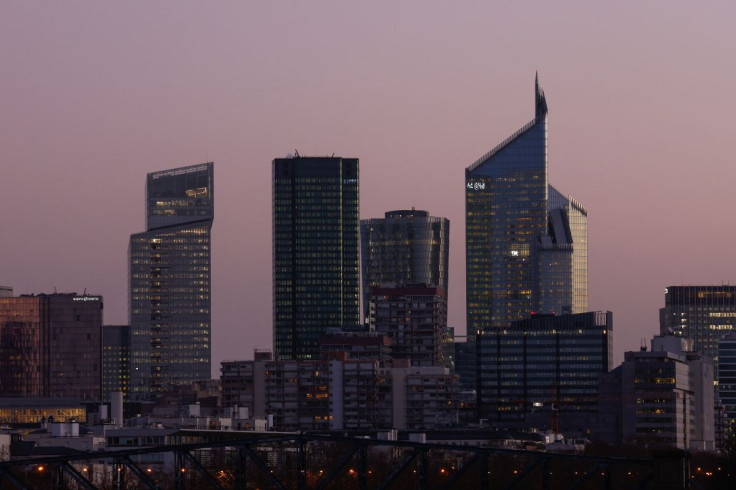Euro Zone Economy Got March Boost From Reopening But Prices Soared -PMI

Euro zone business growth got a boost last month from the re-opening of economies following the Omicron coronavirus variant, according to a survey which however showed soaring energy costs and Russia's invasion of Ukraine threaten the recovery.
S&P Global's final composite Purchasing Managers' Index (PMI), seen as a good guide to economic health, dipped to 54.9 in March from February's 55.5 but was ahead of a preliminary 54.5 estimate.
"March's final euro zone PMI surveys confirmed that output expectations fell sharply, with Germany experiencing the biggest drop. Meanwhile, price pressures remain intense across the currency union," said Jack Allen-Reynolds at Capital Economics.
Germany's services sector grew at the fastest pace in six months in March after COVID-19 restrictions were lifted, but uncertainty after Russia's invasion and accelerating inflation clouded the outlook, earlier data showed.
France's services sector also grew at a faster rate last month, but the pace slowed in Italy and Spain as the war in Ukraine weighed on demand.
In Britain, outside the European Union, services companies enjoyed stronger growth last month than first estimated despite rampant inflation pressures. [GB/PMIS]
A PMI covering the euro zone's dominant services industry nudged up to 55.6 from 55.5, beating the 54.8 flash estimate.
But the rate of growth in overall demand fell and export orders, which include orders made between member nations, declined as firms jacked up their prices to compensate for a record increase in input costs.
Inflation in the currency union was a record high of 7.5% in March, official data showed last week, and with the services output prices PMI at 62.6 - the highest since the survey began in mid-1998 - it is likely to rise further.
That adds pressure on the European Central Bank to rein in runaway prices, even though growth is likely to slow sharply.
The intensifying cost of living crisis, alongside renewed supply chain bottlenecks following Russia's invasion, put a big dent in optimism. The composite future output index slumped to 59.1 from 68.9, its lowest since October 2020.
"The sharp declines in the future output PMIs tell us that firms think that the worst is yet to come," Allen-Reynolds said.
© Copyright Thomson Reuters {{Year}}. All rights reserved.





















